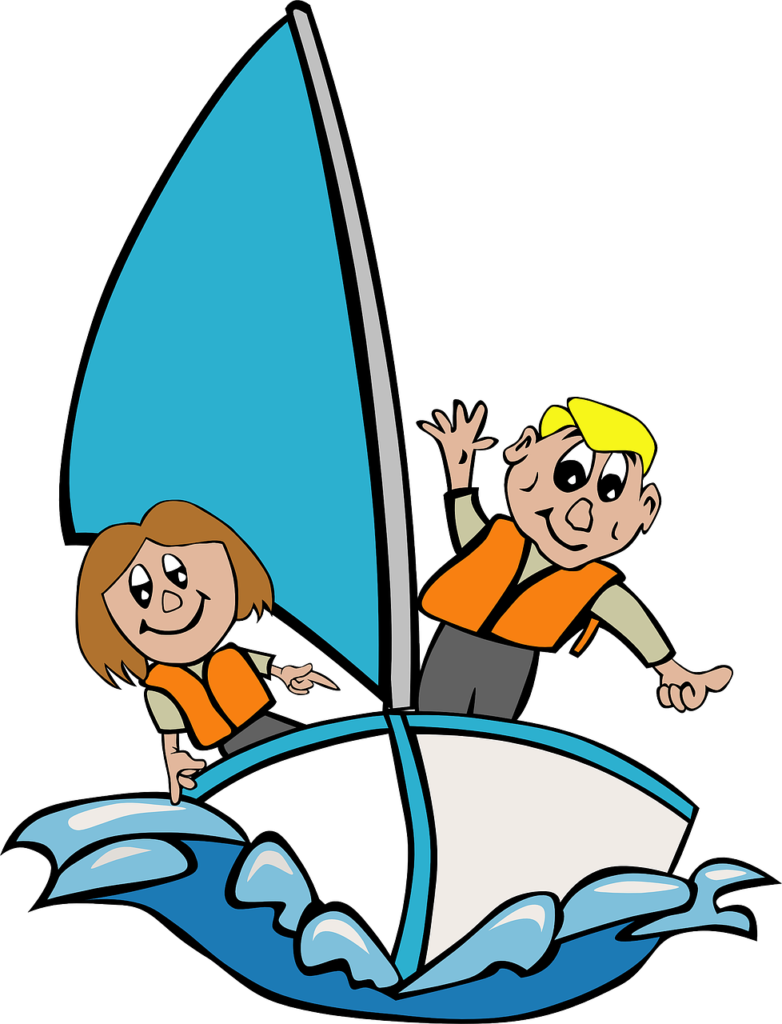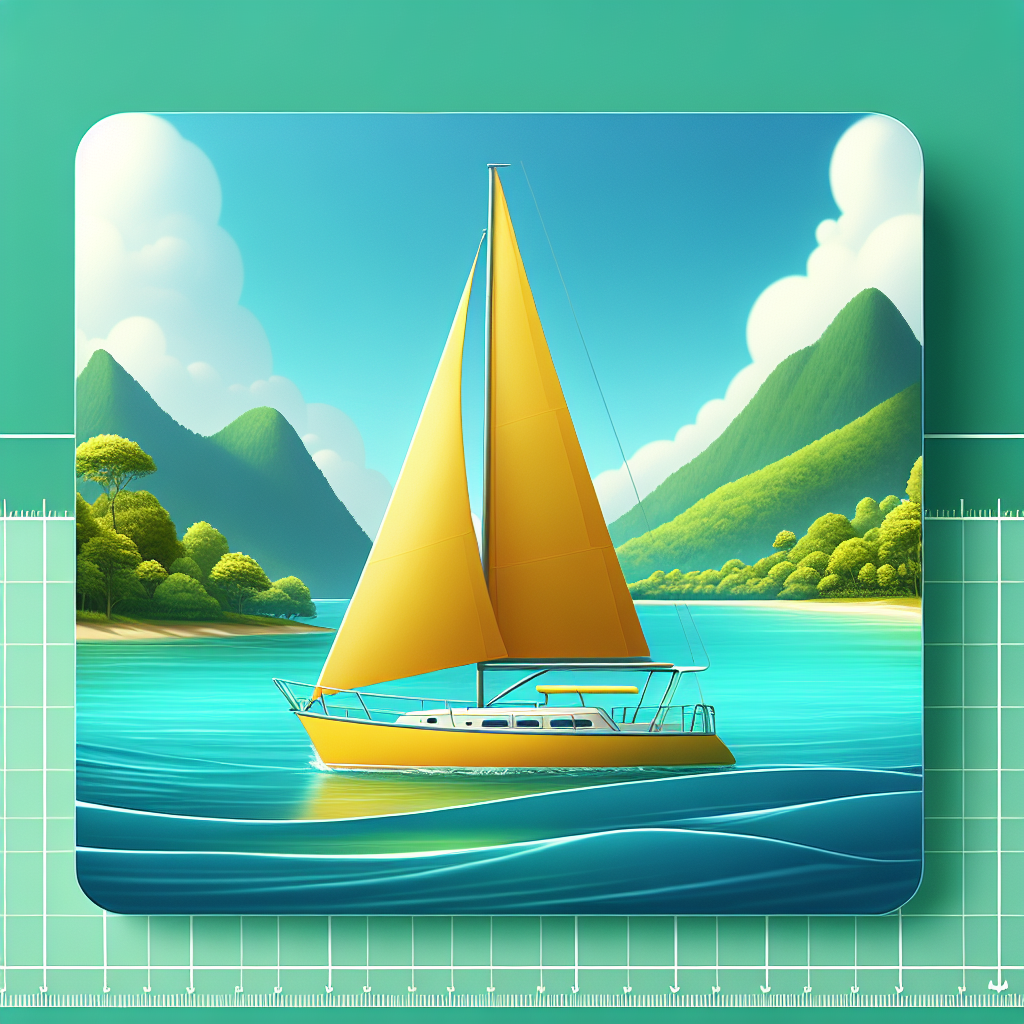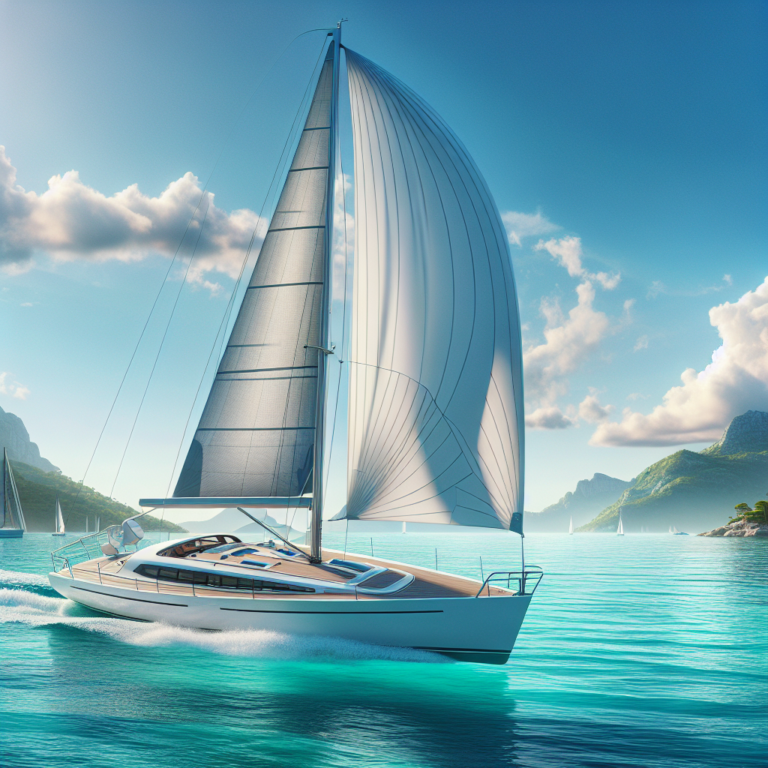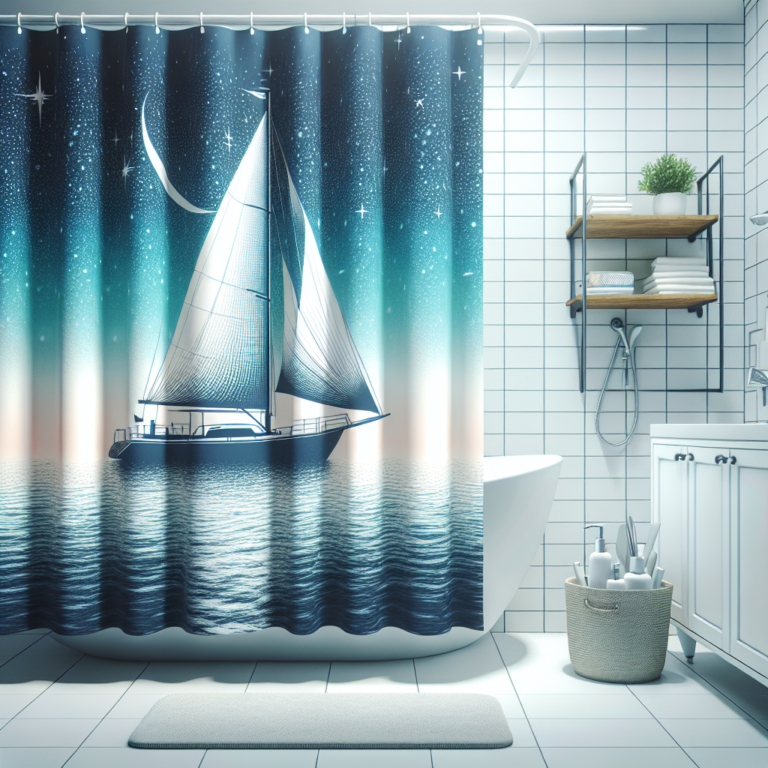Best Sailboat For Beginners
So, you’ve decided to take up sailing and you’re on the hunt for the perfect sailboat to start your adventure with. Well, look no further! In this article, we’re going to explore the best sailboat options specifically designed for beginners. Whether you’re a complete newbie or have some basic sailing experience, we’ve got you covered. Get ready to set sail on the open waters with confidence as we guide you through the top sailboat choices that will make your journey smooth and enjoyable.

Understanding Different Types of Sailboats
Sailboats come in various types, each designed for different purposes and preferences. Understanding these different types can help beginners choose the most suitable sailboat for their needs. Here are four common types of sailboats:
Dinghies
Dinghies are small, single-masted sailboats that are perfect for beginners. They are typically lightweight and easy to maneuver, making them an excellent choice for learning the basics of sailing. Dinghies are also quite affordable, making them popular among beginners and sailing schools alike.
Daysailers
Daysailers are slightly larger sailboats designed for day trips and recreational sailing. They offer more space than dinghies and can comfortably accommodate a small group of people. Daysailers are known for their stability, making them a great choice for beginners who want a more relaxed and comfortable sailing experience.
Cruising Sailboats
Cruising sailboats are larger vessels designed for extended trips or living aboard. They are equipped with amenities such as a kitchenette, sleeping quarters, and sometimes even bathrooms. While cruising sailboats can be suitable for beginners, they do require more experience and training due to their size and complexity.
Racing Sailboats
Racing sailboats are built for speed and performance. They are often lighter and more streamlined than other types of sailboats, allowing them to move swiftly through the water. While they can be thrilling to sail, racing sailboats require a higher skill level and are generally not recommended for beginners.
Factors to Consider When Choosing a Beginner Sailboat
Choosing the right sailboat as a beginner can greatly impact your sailing experience. Here are some key factors to consider when selecting a beginner sailboat:
Size of the Boat
The size of the boat is an essential consideration when choosing a sailboat. Smaller boats, such as dinghies, are generally more manageable for beginners. They are easier to handle and require less physical strength to maneuver. However, larger boats may offer more stability and space for accommodating friends or family.
Number of Masts
Sailboats can have either a single mast or multiple masts. Single-masted sailboats are typically easier to handle and are more common among beginner sailboats. Multiple-masted sailboats, such as schooners, can be more complex to handle and require more experience and skill.
Type of Rig
The rig of a sailboat refers to the arrangement and configuration of the sails. There are various types of rigs, including sloop, cutter, and ketch. For beginners, a simple and easy-to-handle rig, such as a sloop rig, is recommended.
Material
Sailboats can be made from different materials, such as fiberglass, wood, or aluminum. Fiberglass boats are popular among beginners due to their durability and low maintenance requirements. Wood boats, although beautiful, require regular maintenance and can be more prone to damage.
Ease of Use
As a beginner, it’s important to choose a sailboat that is user-friendly and easy to operate. Look for features such as simple controls, clear instructions, and a forgiving design that allows for mistakes without endangering safety.
Detailed Breakdown of Best Beginner Sailboats
With a plethora of options available, here is a detailed breakdown of some of the best sailboats for beginners:
Sunfish Sailboat
The Sunfish sailboat is a classic and beloved choice for beginners. Its simplicity in design and easy rigging make it a popular choice for sailing schools. The Sunfish is lightweight, easy to maneuver, and offers great stability even in windy conditions. Its small size also makes it easy to transport and store.
Laser Sailboat
The Laser sailboat is another excellent choice for beginners. It is a one-design sailboat, meaning that all Lasers are built to the same specifications, ensuring fair competition. The Laser is known for its speed and responsiveness, allowing beginners to learn and progress their skills quickly. It is available in different sizes, accommodating sailors of various skill levels.
RS Quest
The RS Quest is a versatile sailboat that is suitable for beginners and more experienced sailors alike. It offers stability and ease of use, making it an ideal choice for learning and recreational sailing. The RS Quest can accommodate several people, making it great for family or group outings. Its durable construction and quality build ensure longevity and minimal maintenance.
RS Zest
The RS Zest is specifically designed with beginners in mind. It features a stable hull, modern rigging, and an easy-to-use control system. The RS Zest is lightweight, making it easy to launch and retrieve from the water. Its spacious cockpit provides ample room for practice and comfortable sailing.
O’pen Bic Sailboat
The O’pen Bic sailboat is designed for young sailors and beginners. Its small size and lightweight construction make it easy to handle and transport. The O’pen Bic is known for its agility and responsiveness, allowing beginners to develop their sailing skills and learn advanced maneuvers.
Catalina 22
The Catalina 22 is a popular choice among beginner sailors looking for a larger boat. It offers a spacious cockpit and cabin, making it suitable for day trips or overnight stays. The Catalina 22 is known for its stability and forgiving nature, providing beginners with a comfortable and reliable sailing experience.
Hunter 140
The Hunter 140 is an excellent sailboat for beginners looking for simplicity and ease of use. It features a user-friendly rigging system and controls, allowing beginners to quickly get on the water and start sailing. The Hunter 140 offers stability and good performance, making it a popular choice for those new to sailing.
Benefits of Learning on a Dinghy
Learning to sail on a dinghy, such as the Sunfish or Laser, offers several benefits for beginners. Here are some reasons why dinghies are great for learning:
Ease of Maneuverability
Dinghies are small and nimble, allowing beginners to easily understand the principles of sailing. Their lightweight design and responsive handling make them highly maneuverable, teaching beginners how to control and navigate a sailboat effectively.
Affordability
Dinghies are often more affordable compared to larger sailboats, making them accessible to beginners on a budget. Their lower price point allows beginners to enter the world of sailing without breaking the bank, making it a cost-effective option for learning and practicing the essentials.
Building Fundamental Skills
Sailing on a dinghy helps beginners build fundamental skills and gain a deeper understanding of the wind, water, and boat dynamics. Dinghies require active participation and constant adjustments, allowing beginners to develop the necessary skills to handle larger sailboats in the future.

Why Daysailers are Great for Beginners
Daysailers are an excellent choice for beginners looking for a more comfortable and convenient sailing experience. Here’s why daysailers are great for beginners:
Offers Convenience
Daysailers are designed with simplicity and convenience in mind. They are easy to rig, launch, and retrieve from the water, making them a hassle-free option for beginners. Daysailers also typically have a self-draining cockpit, reducing the need for manual bailing and ensuring a more pleasant sailing experience.
Accommodates More People
Daysailers typically have more space and seating capacity compared to dinghies, allowing beginners to bring along friends or family members. This makes learning to sail a more social and enjoyable experience, as beginners can share the excitement and learn together.
Stability
Daysailers are known for their stability, making them ideal for beginners who may be nervous about capsizing or falling overboard. The wider hull design and increased buoyancy provide a stable platform, instilling confidence in beginners and allowing them to focus on learning and enjoying the sail without worrying about instability.
Evaluating the Cost of Beginner Sailboats
When considering a beginner sailboat, it’s essential to evaluate the overall cost beyond just the purchase price. Here are some cost factors to consider:
Purchase Price
The initial purchase price of a sailboat can vary significantly depending on the type, size, and condition of the boat. As a beginner, it’s crucial to set a budget and look for sailboats within that range. Consider purchasing used sailboats, as they often come at a lower cost compared to brand new ones.
Maintenance Costs
Sailboats require regular maintenance to ensure their optimal performance and longevity. Factors such as cleaning, hull maintenance, and sail repairs contribute to the overall maintenance costs. Research the potential maintenance costs associated with different sailboat models and factor them into your budget.
Insurance Costs
If you plan to sail in areas where insurance is required or advisable, consider the cost of sailboat insurance. Insurance premiums can vary depending on the boat’s size, value, and intended use. It’s important to obtain quotes from different insurance providers to find a policy that suits your needs and budget.
Storage Costs
Consider the cost of storing your sailboat when not in use. Options for storage include marinas, boatyards, or storage facilities. The cost of storage can vary depending on the location and the amenities provided, such as security and access to facilities. Research the local storage options and factor in the associated costs.
Cost of Accessories
Sailboats often require additional accessories, such as life jackets, sails, lines, and navigation equipment. These costs should be taken into account when evaluating the overall cost of owning a sailboat. Make a list of the necessary accessories and their prices to determine the total cost of outfitting your beginner sailboat.

Sailing Lessons for Beginners
Taking sailing lessons can be highly beneficial for beginners. Here’s why sailing lessons are important and some recommended sailing schools:
Importance of Sailing Lessons
Sailing lessons offer structured instruction and guidance, accelerating the learning process for beginners. Instructors can teach the necessary skills, safety protocols, and sailing techniques in a safe and controlled environment. Sailing lessons also provide an opportunity to ask questions, gain practical experience, and build confidence on the water.
Beginner Sailing Courses
Many sailing schools offer beginner sailing courses tailored to teach the essentials of sailing. These courses typically cover topics such as boat handling, seamanship, navigation, and safety procedures. Beginner sailing courses often consist of both classroom instruction and hands-on practical training.
Recommended Sailing Schools
Some well-regarded sailing schools for beginners include the American Sailing Association (ASA) and the Royal Yachting Association (RYA). These organizations offer accredited sailing courses worldwide, providing high-quality instruction and certifications. Local sailing clubs and community centers may also offer sailing lessons for beginners.
Maintenance Tips for Beginner Sailboats
Proper maintenance is essential to keeping your sailboat in good condition and ensuring safe and enjoyable sailing experiences. Here are some maintenance tips for beginner sailboats:
Cleaning
Regular cleaning is vital to keep your sailboat looking its best and preventing the build-up of dirt, grime, and mildew. Wash the boat’s exterior using a mild soap or boat-specific cleaner and rinse thoroughly with freshwater. Clean the sails, deck, and interior surfaces regularly to maintain their longevity.
Inspecting for Damages
Inspect your sailboat for any damages, including cracks, chips, or soft spots in the hull, rigging, and sails. Check for loose or damaged fittings, frayed lines, and signs of wear. Repair or replace any damaged components promptly to prevent further deterioration and to ensure the safety of your sailboat.
Regular Servicing
Schedule regular servicing and tune-ups for your sailboat’s engine, if applicable. Change engine oil, filters, and other necessary fluids as recommended by the manufacturer. Regularly inspect and maintain the electrical and plumbing systems, ensuring their proper functioning.
Upgrading Equipment
As you gain more experience and become more familiar with your sailboat, consider upgrading equipment to enhance performance, comfort, and safety. Upgrades can include adding navigation instruments, improving sail controls, or investing in new safety gear. Consult with experienced sailors or professionals to determine the most suitable upgrades for your sailboat.

Safety Measures for Beginner Sailors
Safety should always be a top priority when sailing, especially for beginners. Here are some important safety measures to consider:
Proper Training
Proper training and knowledge are essential for safe sailing. Take sailing lessons and learn the necessary safety procedures, such as how to handle emergencies, perform rescues, and navigate in challenging conditions. Understanding the rules of the water and local maritime laws is also crucial for the safety of yourself and others.
Life Jackets and Safety Gear
Always wear a properly fitting, Coast Guard-approved life jacket when sailing. In addition to life jackets, ensure you have essential safety gear on board, such as a throwable flotation device, a first aid kit, a whistle or horn, and appropriate navigational tools. Regularly check that all safety equipment is in good working condition.
Boat Safety Inspection
Perform regular safety inspections of your sailboat to ensure it is in proper working order. Check navigation lights, bilge pumps, fire extinguishers, and other safety equipment to ensure they are functioning correctly. Familiarize yourself with the sailboat’s emergency procedures and locations of safety equipment.
Weather Awareness
Always check weather forecasts and monitor changing conditions before setting sail. Avoid sailing in inclement weather or when strong winds are expected. Be aware of potential hazards, such as storms, rough seas, or low visibility, and adjust your sailing plans accordingly. Stay informed about local marine advisories and follow the recommendations of experienced sailors or local authorities.
Benefits of Sailing for Beginners
Sailing offers a multitude of benefits for beginners beyond the joy of being on the water. Here are some advantages of sailing for beginners:
Physical Fitness
Sailing provides an excellent opportunity to engage in physical activity. The combination of maneuvering the sailboat, trimming the sails, and navigating the water requires the use of various muscle groups, improving strength and endurance. Hoisting sails, hiking out, and performing maneuvers contribute to cardiovascular fitness and overall physical well-being.
Mental Wellness
Sailing offers a unique opportunity to disconnect from everyday stressors and connect with nature. The peacefulness of being on the water can promote relaxation, reduce anxiety, and improve mental clarity. Engaging in sailing also requires focus, problem-solving, and decision-making skills, stimulating the mind and promoting mental agility.
Fun and Adventure
Sailing offers excitement and adventure for beginners. The thrill of catching the wind, navigating the water, and feeling the boat surge forward can create a sense of adrenaline and joy. Exploring new destinations, discovering hidden coves, and enjoying breathtaking sunsets while aboard a sailboat add to the sense of adventure and make sailing a memorable experience.
Learning Patience and Resilience
Sailing requires patience and resilience, valuable qualities that can be developed through the challenges and unpredictability of the water. Mastering the art of sailing takes time and practice, and beginners will inevitably encounter setbacks and obstacles along the way. Learning to adapt to changing conditions, problem-solve, and persevere through difficult situations foster resilience and build character.
In conclusion, understanding the different types of sailboats, evaluating key factors when choosing a beginner sailboat, and considering the benefits of learning to sail on a dinghy or daysailer are essential steps for beginners. Additionally, evaluating the cost of sailboats and considering maintenance, safety, and the benefits of sailing contribute to a comprehensive understanding of the sailing experience for beginners. So, seize the opportunity, get out on the water, and embark on a fulfilling and rewarding journey into the world of sailing.









